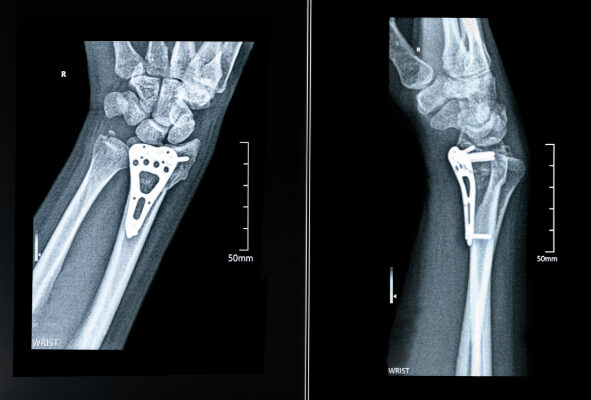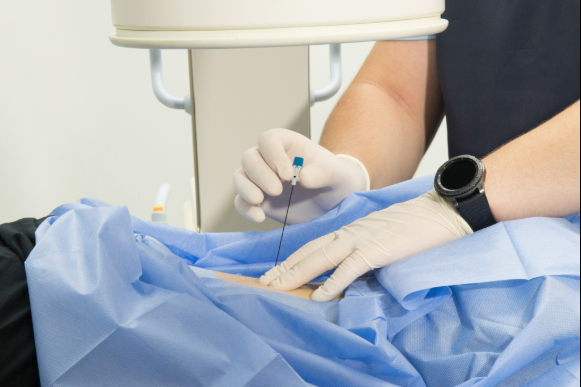A Colorado car accident can derail your life in seconds. Medical bills arrive, paychecks stop, and insurers push for quick statements. If you do not have lawful immigration status, a bad day can turn into a crisis. Regardless of status, Colorado law still gives you the right to bring a claim and recover full compensation. The Colorado car accident lawyers at Bowman Law prepared this guide to explain how Colorado’s licensing system for undocumented drivers works.
Your Right to Bring a Personal Injury Claim
You can file a personal injury claim in Colorado regardless of immigration status. Equal protection applies to “persons,” and courts in Colorado apply ordinary tort rules. In practice, you can move to exclude immigration-status evidence when it invites unfair prejudice or distracts the jury from fault, causation, and damages. Colorado Rule of Evidence 403 allows judges to exclude relevant evidence when the risk of unfair prejudice substantially outweighs probative value. Use it to keep trials focused on the collision, not immigration politics.
Licenses For Undocumented Coloradans
Colorado’s Road and Community Safety Act allows qualified residents to obtain a driver license, regardless of immigration status. As of June 2023, all Colorado Department of Motor Vehicles (DMV) offices can issue driver licenses to undocumented Coloradans. The name of the license commonly known as the SB 251 license has also been simplified to a name that is easier to recognize and remember: standard license. This change is important because it reduces unlicensed driving and improves identity verification after a Colorado car accident.
Driving without a license in Colorado carries significant penalties, and it often complicates claims handling. Notwithstanding this reality, the lack of a driver’s license does not automatically equal fault. If you were the victim in a Colorado car accident, it is important not to conflate “no license” with negligence. The conversation should always focus on duty, breach, causation, and damages.
Colorado First Party Insurance
In 2003, Colorado repealed its no-fault Personal Injury Protection system. Insurers must instead offer Medical Payments Coverage (Med Pay). By statute, insurance policies issued in Colorado must include at least $5,000.00 in Med Pay benefits unless the coverage is rejected in writing by the named insured. Med Pay pays for accident-related medical care for occupants of the insured vehicle regardless of fault and can move money quickly to providers while liability gets sorted out.
Uninsured and underinsured motorist coverage (UM/UIM) means a first party form of insurance that protects you when the at-fault driver has no coverage or too little. Colorado requires carriers to offer UM/UIM up to your bodily injury liability limits, and setoffs that would dilute such coverage is disallowed.
When the at-Fault Driver Lacks Insurance or Cannot be Found
Unfortunately, a Colorado car accident can involve undocumented drivers. This can raise two linked problems: no bodily injury insurance coverage and a risk of flight. Colorado law imposes strict duties at the scene of a Colorado car accident. Leaving the scene after injury or death triggers serious criminal exposure, including felony charges, but it also creates problems because you cannot easily identify the driver or carrier.
You still have tools. The UM statute treats an alleged tortfeasor as “uninsured” for UM purposes when you cannot locate that person for service after reasonable efforts, subject to specific conditions. That provision can unlock UM benefits even if the other driver actually carried insurance but disappears from the case. Use it with care, document your service attempts, and track the police report and any carrier identification issues.
Practical Evidence Playbook for a Hit-And-Run
Hit-and-runs are a serious crime, and Colorado state law treats these very seriously. Colorado codifies and defines hit-and-runs at C.R.S. § 42-4-1601 and C.R.S. § 42-4-1603. The law is clear: drivers are required to stop or return to a scene if they have been in an accident to provide identification and registration information to the victims.
It is critical to follow certain steps after a Colorado car accident to preserve rights. These are explored in more depth in our recent Colorado Hit-and-Run Accidents blog, but after an accident, you should:
- Check for Injuries: Safety is the most important element, so be sure to check yourself and others for signs of harm.
- Call 911: Calling emergency responders to the scene is critical so they can assess injuries, identify any other existing hazards, and collect relevant information.
- Adhere to Law Enforcement Instructions: Listen to officers’ direction because they are at the scene to ensure everyone’s safety, direct traffic, and collect important information about the accident.
- Obtain Witness Information: Speak to bystanders, as they can play a key role in recounting what happened to law enforcement and emergency personnel.
- Take Photographs: Documenting the damage with visual evidence will support your case and help future legal counsel in fighting for justice.
- File a Police Report: Whatever you do, don’t forget to obtain the report number associated with your accident and request a copy of the police report for your records.
- Consult an Attorney: Reach out to legal counsel so you don’t have to manage the stress and complexities of hit-and-run accidents by yourself.
If the Driver was Working: Look for Bigger Pockets
If the at-fault driver was on the job, you may reach the employer under respondeat superior. Screen for delivery platforms, contractors moving between jobs, and rideshare periods. If the driver was acting within the course and scope of employment, we pursue the employer under respondeat superior and the employer’s commercial auto policy.
In Colorado, once the employer accepts vicarious liability for the employee’s negligence, courts often limit duplicative “direct negligence” theories at trial (like negligent entrustment) because they only add prejudice, not compensation. The key for you is simple: we reach the bigger policy and keep the case clean.
Keep Immigration Out
You control the record. Object to discovery requests that target immigration status as irrelevant and prejudicial. File motions in limine before trial to exclude immigration-status evidence and any references to consular IDs, ITINs, or licensing history unless the defense can show a specific, non-prejudicial purpose tied to a damages theory. Cite Colorado Rules of Evidence 401 and 403 and remind the court that trials should resolve fault and damages, not identity politics. Recent Colorado appellate decisions reiterate how trial courts apply CRE 403’s prejudice balancing, which you can leverage when defense arguments try to inflame the jury.
Colorado law gives undocumented Colorado truck accident victims the same path to civil recovery that it gives everyone else. The state licenses qualified residents regardless of immigration status. Carriers must include MedPay unless the insured rejected it in writing, and UM/UIM can step in when the at-fault driver lacks coverage or disappears. Courts can and should keep immigration evidence out when it distracts the jury and inflames prejudice. If you build the evidence quickly and sequence coverages correctly, you can protect injured clients and hold negligent drivers accountable, no matter who sat behind the wheel.
At Bowman Law firm we’re dedicated to helping injured individuals throughout Colorado recover the compensation they deserve after sustaining damages from an accident caused by someone’s negligence. If you or your loved one were in a car accident and have suffered impacts to your health, livelihood, and financial wellbeing, you deserve to be compensated and have your best interest protected against insurance companies’ tactics to offer less than you deserve. Contact the Colorado car accident lawyers at Bowman Law to help you recover the compensation owed to you.
We serve Denver, Boulder, Colorado Springs, and Fort Collins and the surrounding areas.
Jerry Bowman
Owner and Managing Attorney
Jerry Bowman, J.D., M.A., Owner and managing attorney of Bowman Law LLC, takes his responsibility to the legal profession seriously and dedicates his time and effort to providing quality and competent legal representation to clients in Denver and throughout all of Colorado. He holds an MA in Political Science from Wayne State University and earned his law degree in two and a half years from Michigan State University College of Law.




 Return to All News & Resources
Return to All News & Resources


